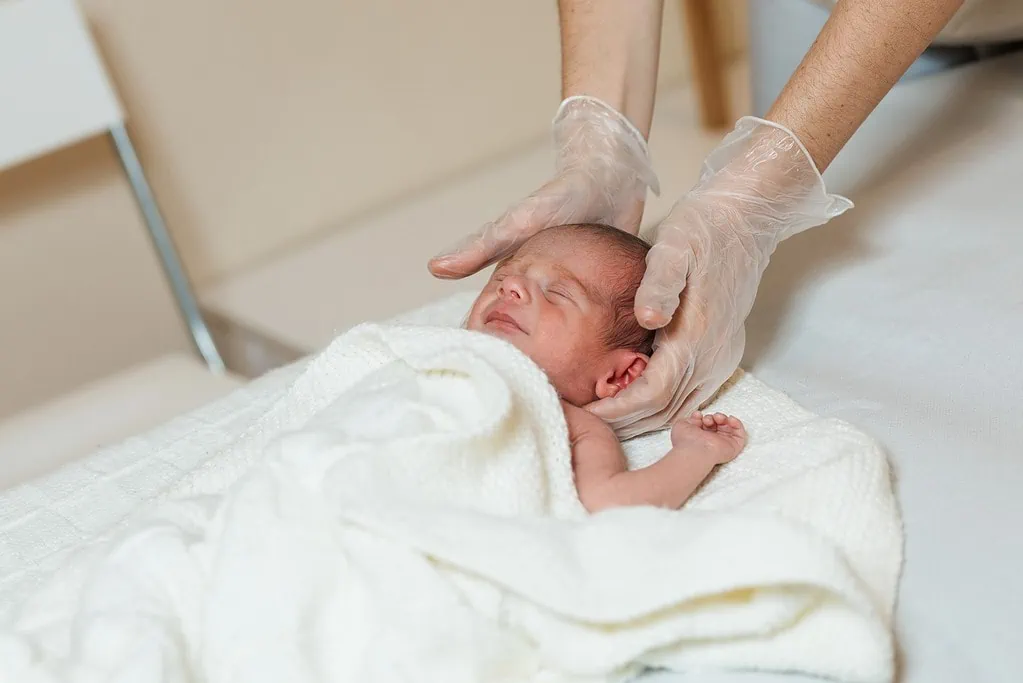The short answer is yes, babies can be born with teeth. These are called “natal teeth” and are relatively rare, occurring in about 1 in every 2,000 to 3,000 births. Natal teeth are usually not well-anchored and may be removed to prevent potential risks, such as inhalation. Let’s analyze what are natal teeth and if you should worry about it.
Summary
- ? Some babies can be born with teeth known as natal teeth. This is rare but not unheard of.
- ? Natal teeth might result from environmental toxins or certain genetic disorders.
- ? Most natal teeth are harmless but can sometimes cause problems like discomfort during feeding.
- ? Doctors use oral exams and possibly X-rays to diagnose natal teeth. Treatment options may include removal if the tooth is loose.
- ?♂️ Myths about babies born with teeth often come from old cultural beliefs; these early bloomers don’t indicate mystical powers or serious health issues.
- ? With careful management and professional dental care, most complications associated with natal teeth can be effectively treated.
What are Natal Teeth?
Natal teeth are quite rare, making their appearance in one out of every 2,000 to 3,000 births. These teeth present at birth can seem alarming but are usually harmless for newborns.
They often have a weak root and may look different than regular baby teeth. Though the exact cause of natal teeth is unknown, they could be related to certain medical conditions or genetic factors.
The most important thing is that parents should not panic if their child has natal teeth – it’s unusual but not necessarily dangerous.
Definition and rarity of natal teeth
Natal teeth are essentially baby teeth that make their grand entrance far too early. While most babies start teething at around six months, a newborn with natal teeth already enters the world with one or two pearly whites.
Though interesting, this rare dental anomaly occurs approximately once every 2000 to 3000 births. Despite their similarity to ordinary primary teeth, natal teeth often have less-developed roots, which can sometimes cause problems for the nursing mom and even pose an injury risk to the infant.
Causes of natal teeth
Although the exact cause of natal teeth remains a mystery, several theories exist. Some researchers believe that environmental toxins like PCBs and dibenzofurans may play a key role in their development.
Another theory revolves around certain genetic disorders, such as Sotos syndrome, chondroectodermal dysplasia, and pachyonychia congenita, which could be associated with natal teeth.
Maternal health conditions during pregnancy also frequently factor into this situation — poor maternal health or endocrine disturbances might lead to these dental abnormalities in newborns.
Even an elevated body temperature due to fever can act as a predisposing element for the emergence of these neonatal teeth.
Appearance and symptoms of natal teeth
Natal teeth often manifest as enamel abnormalities and are visibly smaller than regular baby teeth. Due to incomplete root development, these teeth may exhibit a distinct wobble or movement, differing from the normally firm position of healthy milk teeth.
Additionally, the enamel on natal teeth could appear underdeveloped or damaged. This is what we refer to as enamel hypoplasia.
However, it’s essential to note that not all infants born with natal teeth display visible symptoms or complications. Some babies might experience discomfort during feeding due to immature tooth development, while others may not show any signs.

Equally important is knowing that a weak root system can lead to early tooth loss if left untreated, posing potential dangers for your little one, such as a choking hazard if swallowed accidentally.
Treatment and Management of Natal Teeth
“Determining if your baby has natal teeth usually involves a simple oral exam by a pediatric dentist. Be aware of potential complications such as injury to the baby’s tongue or the risk of the tooth becoming loose and posing a choking hazard.
Treatment options can range from filing down sharp edges of the teeth to complete removal in certain cases; always consult your child’s doctor for proper dental care.
Diagnosis of natal teeth
Pediatric dentists utilize several methods to diagnose natal teeth. They conduct a thorough oral examination of the infant’s mouth, which may involve gentle palpation and visual inspection.
Sometimes, if required, they might also take radiographs to determine the root development and position of the tooth underneath the gums. Physicians may associate natal teeth with specific syndromes such as Pierre Robin sequence or Ellis-van Creveld syndrome; however, these associations are not common for all cases.
A clear understanding of symptoms like discomfort while feeding or potential complications such as injury to the infant’s tongue helps diagnose neonatal teeth more accurately.
Early diagnosis contributes significantly towards effective dental care management and addressing any possible feeding challenges associated with premature tooth eruption.

Potential complications
Sometimes, natal teeth can lead to unexpected issues. Here are some potential complications you should be aware of:
- Inhalation: If the tooth becomes loose, it might be swallowed or inhaled, leading to serious respiratory problems.
- Breathing and swallowing difficulties: The presence of natal teeth can interfere with the baby’s ability to breathe and swallow properly.
- Tongue injury: Natal teeth can harm the infant’s tongue, causing discomfort and irritation.
- Tongue ulcers: Known as Riga-Fede disease, infants can develop ulcers on the tongue’s ventral surface due to friction with natal teeth.
- Dental development issues: Natal teeth often have poor root formation and incomplete roots that could affect future dental health.
- Feeding difficulties: Babies with natal teeth sometimes have trouble latching onto the mother’s nipple for breastfeeding.
- Nipple pain and maternal discomfort: Mothers may experience pain while nursing a baby with natal teeth, which may lead to feeding challenges for the infant.
Dental care and treatment options
Taking care of natal teeth requires special attention and proper dental care. Here are some treatment options for addressing natal teeth:
- Consultation with dental professionals: They can examine your baby’s oral condition and give appropriate advice regarding the management and possible treatments.
- Vigilant management: It includes careful feeding and regular monitoring of the teeth to prevent any possible complications, such as injury to the tongue.
- Parental counseling: Educating about the condition can help parents provide optimal home care for their child’s unique dental needs.
- Timely removal: If a natal tooth is loose, an extraction might be considered to prevent potential risks like swallowing or choking.
- Protective measures: In cases where removal isn’t required, measures like applying a mouth guard could be taken to avoid damage to the baby’s tongue.
- Accommodating future growth: In case of early loss of natal teeth, maintaining space for adult teeth development is essential. Dental professionals can assist in planning for this.
Myths and Misconceptions about Natal Teeth
You might have heard tales about babies born with teeth being destined for greatness or that they possess mystical powers, but are these claims based on reality? While it’s fun to talk about age-old myths and beliefs, it’s important to be aware that some parents are so entrenched in their culture and beliefs that, more often than not, pose their baby’s life in danger.
Cultural beliefs and superstitions
In traditional societies, natal teeth often arouse fear and fascination due to cultural beliefs and superstitions. For instance, a baby born with these teeth is considered an omen or culture-bound phenomenon in Africa.
Many families influenced by ethnic customs may harbor misconceptions about the meaning behind this rare occurrence. Although the superstitions vary across cultures, misbeliefs regarding natal teeth are widespread globally.
Yet, genetics or environmental factors might be responsible for causing them rather than any mystical reasons. Moreover, such teeth neither predict fortune nor signify misfortune—this is simply another myth that needs debunking.
Common misconceptions about natal teeth
Lastly, let’s see some common misconceptions and misunderstandings surrounding natal teeth.
- Many people believe natal teeth bring supernatural powers or unusual behavior. This belief comes from folklore and lacks scientific evidence.
- Some people fall into the trap of thinking these early teeth signify a severe medical condition. While natal teeth can be associated with certain genetic factors, they don’t necessarily indicate a severe health issue.
- Another misconception is that teething causes unbearable pain for the baby. Although discomfort is prevalent, it varies from baby to baby.
- Some folks mistakenly think all natal teeth need removal immediately after birth. The truth is that whether a tooth should be removed or not depends on its stability and potential for injury.
- A widespread misunderstanding attributes hormonal influences as the sole cause of natal teeth formation. While hormones may play a part, genetics and other unknown factors also affect their development.
- Lastly, many people falsely consider natal teeth an extremely rare occurrence, when around one in every 2,000 to 3,000 newborns has one or more natal teeth at birth.
